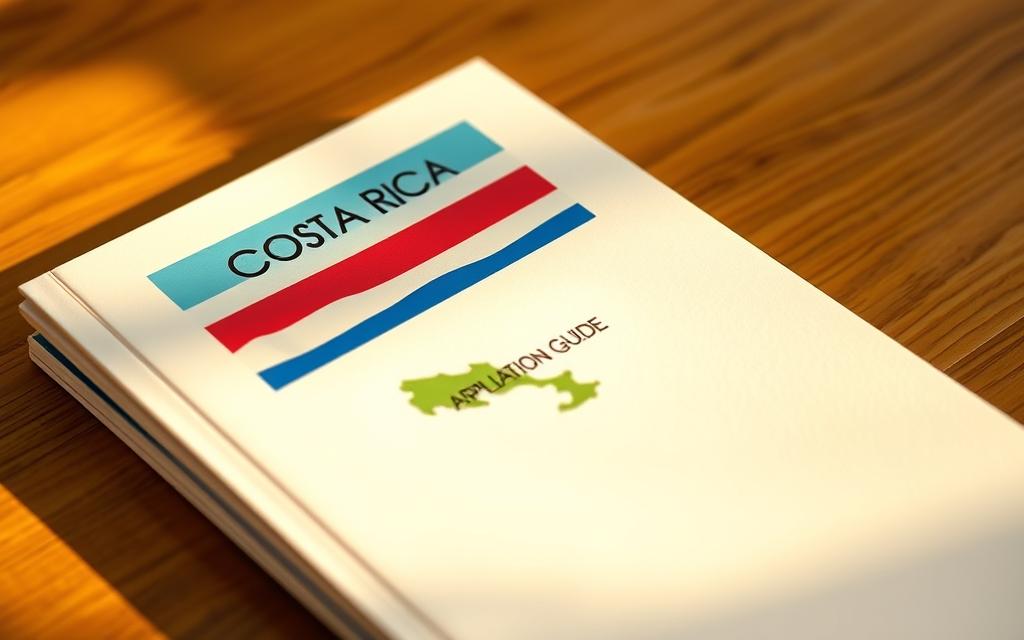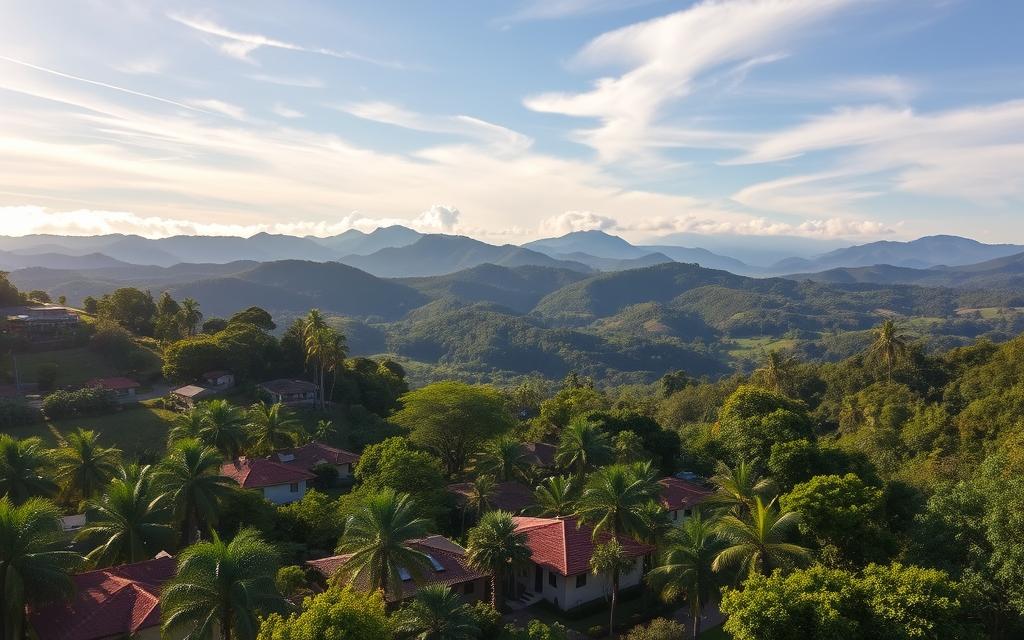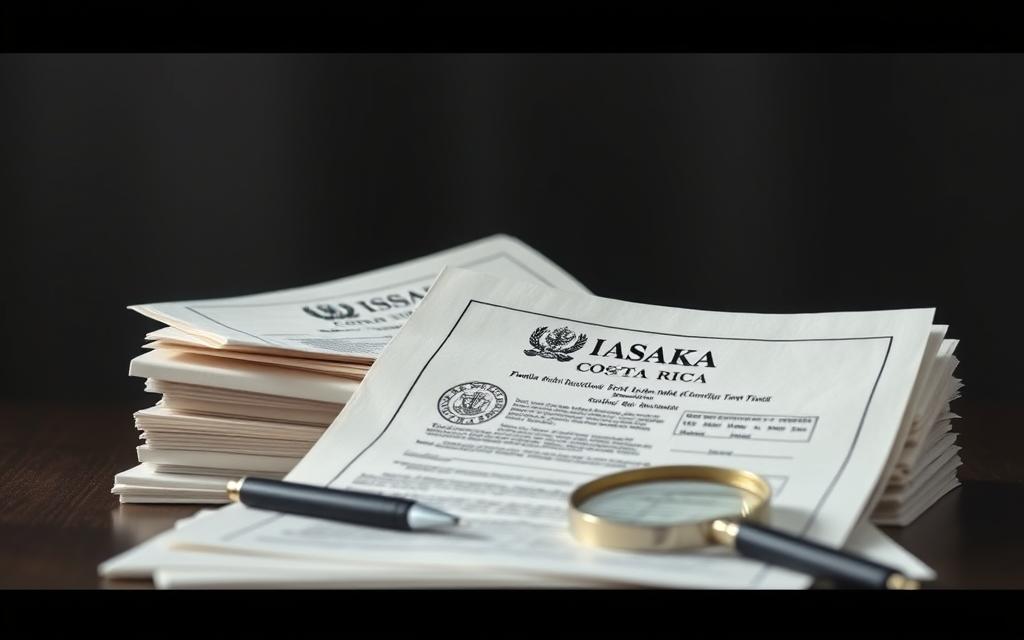Common Mistakes in Costa Rica Residency Applications | Guide

Did you know that approximately 80% of residency applications in Costa Rica are rejected due to paperwork errors? This surprising statistic highlights the importance of understanding the process and avoiding pitfalls. Moving to this beautiful country offers a chance for a better quality of life, but the journey begins with a successful application.
Costa Rica provides diverse options for those seeking residency, from pensionado to investor programs. Each has specific requirements, such as proof of income or substantial financial investments. Navigating the process can be complex, but with the right guidance, it becomes manageable.
CRIE, with over 20 years of expertise, emphasizes the value of legal assistance. Proper documentation and adherence to immigration laws are crucial. Mistakes in paperwork or financial requirements can delay or even derail your plans. Careful preparation and understanding each step can make all the difference.
For those considering this move, it’s essential to know the rules. Documents must be translated and notarized, and health insurance is mandatory post-approval. With the right approach, your path to residency can be smooth and successful. Learn more about what to do if your application is denied here.
Introduction to Costa Rica Residency and Lifestyle Opportunities
Costa Rica is more than just a destination; it’s a lifestyle that draws people from around the globe. With its stunning landscapes, warm culture, and high quality of life, this country offers a unique experience for those seeking a fresh start. Residency here opens the door to a world of opportunities, from vibrant communities to access to excellent public services.
Embracing the Pura Vida Lifestyle
The Pura Vida spirit is at the heart of Costa Rica’s culture. It’s a philosophy that celebrates simplicity, gratitude, and a relaxed way of life. For expats, this mindset is a key attraction, offering a break from the fast-paced routines of other countries. Here, life revolves around nature, community, and enjoying the present moment.
Why Costa Rica Appeals to Expats
Costa Rica’s welcoming attitude and rich culture make it a top choice for expats. The country boasts a high literacy rate and a healthcare system that allocates 9.3% of its GDP to ensure quality services. With legal residency, you gain access to these benefits, enhancing your quality of life. Whether you’re drawn to the beaches, rainforests, or friendly communities, Costa Rica offers a secure and fulfilling environment to start your new chapter.
Overview of Costa Rica Residency Options

Costa Rica offers diverse residency options tailored to different lifestyles and financial situations. Whether you’re a retiree, investor, or someone with a steady income, there’s a program designed to meet your needs. Understanding the specifics of each option is crucial for a successful application.
Rentista Residency Explained
The Rentista Residency is ideal for individuals with a stable income. This program requires a monthly income of at least $2,500 for two years or a bank deposit of $60,000. Proof of income must be submitted, and the funds must remain untouched during the residency period. This option is perfect for those who want to live in Costa Rica without making a large upfront investment.
Investment and Permanent Residency Alternatives
For those with capital to invest, the Investor Residency program is an excellent choice. A minimum investment of $150,000 in real estate or stocks is required. This pathway not only grants residency but also contributes to the country’s development. Permanent residency is another option, offering long-term stability for those who meet the criteria.
Each residency pathway has its own set of documentation and financial requirements. Proper preparation and understanding of these details are essential. For example, documents must be translated into Spanish and apostilled. Additionally, health insurance is mandatory post-approval. Learn more about real estate investment for residency to explore this option further.
Common mistakes in Costa Rica residency applications
Navigating the residency process in Costa Rica can be tricky without proper guidance. Many applicants face unexpected hurdles due to simple oversights in their submissions. Understanding the most frequent errors can help you avoid delays and ensure a smoother experience.
Inadequate Documentation and Errors
One of the most common challenges is submitting incomplete or incorrect documents. Missing apostilles, translation issues, or errors in application forms can lead to significant delays. For example, birth certificates and police records must be apostilled and translated into Spanish.
Small mistakes, like incorrect dates or missing signatures, can also cause problems. We’ve seen cases where correcting these minor errors made a big difference in approval timelines. Always double-check your paperwork to meet every requirement.
Misunderstanding Financial Requirements
Another frequent issue is misunderstanding the financial criteria. For programs like Rentista Residency, applicants must provide proof of income or a bank deposit. Errors in income verification or miscalculations can lead to rejections or extended delays.
For instance, some applicants fail to maintain the required funds untouched during the application period. This oversight can increase overall costs and prolong the process. Ensuring accurate financial declarations is crucial for a successful application.
By addressing these challenges early, you can save time and avoid unnecessary complications. Proper preparation and attention to detail are your best tools for success.
Key Legal Documentation and Prerequisites for Residency

Preparing the right legal documents is the foundation of a successful residency application in Costa Rica. Without proper paperwork, even the most straightforward cases can face delays or rejections. Understanding the specific requirements and ensuring all documents are in order can make the process smoother and more efficient.
Essential Certificates and Background Checks
Every applicant must provide authenticated birth certificates and police clearance records. These documents must be apostilled and translated into Spanish to comply with local law. Background checks are mandatory to ensure applicants meet the country’s legal standards.
Additionally, fingerprints are required for individuals aged 12 and older. This step is crucial for verifying identity and ensuring compliance with immigration rules. Properly authenticated certificates and background checks reduce processing delays significantly.
Health, Income, and Investment Proofs
Proof of health insurance is a mandatory requirement for residency approval. Applicants must also demonstrate financial stability through income or investment proofs. For example, the Rentista program requires a monthly income of $2,500 or a $60,000 bank deposit.
Investors must provide evidence of a minimum $150,000 investment in real estate or stocks. These financial requirements ensure applicants can support themselves without relying on public resources. Proper documentation of health and income is essential for meeting legal prerequisites.
By compiling all necessary documents and ensuring they meet Costa Rican law, applicants can improve their chances of approval. For more insights, explore the common pitfalls in Costa Rica residency to avoid unnecessary setbacks.
Navigating Costa Rica’s Immigration Laws and System

Understanding Costa Rica's immigration system is key to a successful residency journey. The process involves multiple layers of legal requirements, making it essential to stay informed and prepared. With frequent updates to immigration law, even small oversights can lead to delays or rejections.
Understanding Complex Immigration Rules
Costa Rica’s immigration law is detailed and often complex. For example, documents must be apostilled and translated into Spanish to meet legal standards. Background checks and financial proofs are mandatory, adding to the intricacy of the process.
Staying updated on changes in the law is crucial. Recent updates have introduced new requirements, such as proof of health insurance for all applicants. These changes highlight the importance of precision in every step of the application.
Practical Tips for Legal Compliance
To ensure compliance, start by gathering all required documents early. Double-check translations and apostilles to avoid delays. Financial proofs, like income statements or bank deposits, must meet specific criteria outlined in the law.
Working with legal professionals can simplify the process. They provide guidance on navigating the system and ensure all steps are correctly followed. This approach minimizes errors and increases the chances of approval.
By understanding the immigration law and following practical tips, you can navigate the system with confidence. Proper preparation and professional support are your best tools for success.
Avoiding Document Processing Errors and Delays
Proper document processing is critical to avoid unnecessary delays in your residency journey. Many applicants face challenges due to incomplete or incorrect paperwork, which can extend processing times significantly. Ensuring accuracy in every step of the process is essential for a smooth experience.
Ensuring Proper Apostille and Translation
One of the most common issues is failing to obtain correct apostilles and certified translations. All key documents, such as birth certificates and police records, must be apostilled and translated into Spanish. Without these, your application may be delayed or rejected.
Small errors, like missing signatures or incorrect dates, can also cause problems. We’ve seen cases where fixing these minor issues made a big difference in approval timelines. Always double-check your paperwork to ensure it meets all requirements.
Proper document management saves time and reduces additional costs. By addressing these challenges early, you can avoid unnecessary complications and move forward with confidence.
For example, processing times can exceed one year if documents are incomplete or incorrect. Working with legal professionals can help ensure all paperwork is accurate and meets official standards. This approach minimizes errors and increases the chances of approval.
Expert Assistance and CRIE’s Role in Residency Success
Securing residency in a new country can feel overwhelming, but expert guidance makes it manageable. With over 20 years of experience, CRIE has helped thousands of applicants achieve their goals. Our team specializes in navigating the complexities of immigration, ensuring every step is handled with precision.
Benefits of Working with Immigration Experts
Professional advice is invaluable when applying for residency. Experts understand the legal requirements and can identify potential issues before they arise. This proactive approach reduces delays and ensures your application meets all criteria.
CRIE offers personalized service tailored to your unique situation. From document preparation to submission, we handle every detail efficiently. Our clients benefit from a streamlined process that minimizes errors and maximizes success rates.
Working with professionals also provides peace of mind. Knowing your application is in capable hands allows you to focus on your transition. With expert support, what seems daunting becomes a manageable and rewarding journey.
Our track record speaks for itself. Over 90% of clients attribute their success to our expertise. By partnering with CRIE, you gain access to proven strategies and insights that increase your chances of approval.
Transforming the residency process into a smooth experience is our goal. Let us guide you every step of the way, ensuring your application is accurate, complete, and ready for success.
Step-by-Step Guide to the Application Submission Process
Submitting a residency application requires careful planning and attention to detail. Each step in the process plays a crucial role in ensuring your application is complete and accurate. By following a systematic approach, you can avoid common pitfalls and streamline your journey.
Preparation and Organization of Documents
Start by gathering all required documents, such as birth certificates, police records, and proof of income. Ensure each document is apostilled and translated into Spanish to meet legal standards. Organize them in a clear, labeled folder for easy access during submission.
Double-check every detail, including dates, signatures, and translations. Small errors can lead to significant delays. We recommend creating a checklist to ensure nothing is overlooked. Proper preparation minimizes the risk of complications and keeps your application on track.
Managing Submission Timelines
Timing is critical in the application process. Processing times can range from 6 to 14 months, so plan accordingly. Submit your documents as early as possible to avoid unnecessary delays. Missing deadlines can extend the overall timeline and increase costs.
Set reminders for key dates, such as document submission and follow-up appointments. Staying organized helps you meet deadlines and ensures a smoother experience. For more insights, explore our guide on how to get residency in Costa.
By following these steps, you can navigate the application process with confidence. Proper preparation and timely submission are your best tools for success.
Managing Costs and Fee Structures in Residency Applications
Understanding the financial aspects of the residency process is crucial for a smooth transition. From application fees to legal expenses, costs can add up quickly. Proper budgeting ensures you’re prepared for every step of the journey.
Budgeting for Legal and Processing Fees
The residency process involves several fees, including application charges and legal costs. For example, the application fee is $250, while temporary residency costs $100. Permanent residency requires a $200 fee. These rates are standard but can vary depending on the program.
Legal fees are another significant expense. Hiring a lawyer ensures your application meets all requirements. While this adds to the overall cost, it reduces the risk of errors that could delay approval. Transparency in fee structures is essential to avoid financial surprises.
Different residency options come with varying costs. The Rentista program requires a $60,000 deposit or proof of $2,500 monthly income. The Investor program demands a $150,000 investment. Understanding these requirements helps you plan your budget effectively.
We recommend working with professionals to manage fees transparently. Experts can guide you through the process, ensuring all costs are accounted for. This approach minimizes unexpected expenses and keeps your application on track.
By breaking down the costs and planning ahead, you can navigate the financial side of residency with confidence. Proper preparation ensures a smoother journey and a successful outcome.
The Impact of Legal and Cultural Preparation on Residency Success
Understanding the legal and cultural landscape of a new country is essential for a seamless transition. Thorough preparation in these areas not only ensures smoother approval but also enhances your overall experience. By aligning with local laws and embracing cultural norms, you set the foundation for long-term success.
Aligning with Costa Rican Laws and Norms
Compliance with the law is a critical requirement for residency approval. Familiarizing yourself with the country’s legal framework helps avoid common pitfalls. For example, ensuring documents are properly apostilled and translated into Spanish is a key step. This attention to detail minimizes delays and increases your chances of success.
Cultural preparation is equally important. Embracing the Pura Vida lifestyle and understanding local customs can significantly enhance your experience. Many applicants find that integrating into the community enriches their new life in the country. This dual focus on legal and cultural readiness creates a smoother transition.
We’ve seen how applicants who invest time in understanding both the law and the culture achieve better outcomes. Their ability to navigate the system and connect with locals fosters a sense of belonging. This preparation is an ongoing process that continues to benefit them long after residency is granted.
By prioritizing legal and cultural readiness, you not only meet the requirements but also create a fulfilling experience. This approach ensures your journey is both successful and rewarding.
Real Estate and Investment Considerations in the Residency Process
Investing in real estate can open doors to residency opportunities in Costa Rica. For many, property ownership is not just a financial decision but a pathway to achieving long-term residency goals. Understanding the requirements and legal considerations is essential for success.
Understanding Property Investment Requirements
Certain residency programs, like the Investor Visa, require a minimum investment in local property. For example, purchasing real estate worth at least $150,000 qualifies you for this pathway. This investment must be maintained for a specific period, typically three years.
Proper documentation is crucial. Property appraisals must be conducted by licensed professionals, and all legal documents must be translated into Spanish. Ensuring these details are accurate can prevent delays in the application process.
Navigating Local Legal Insights
Working with a qualified lawyer is highly recommended when dealing with property transactions. Legal professionals can guide you through the complexities of local laws, ensuring compliance and protecting your interests. For instance, they can help verify property titles and resolve any disputes.
Local legal insights also play a role in understanding tax implications and ownership regulations. By staying informed, you can make better decisions and avoid potential pitfalls. For more details, explore our guide on real estate investment for residency.
Navigating the real estate market requires careful planning and professional support. With the right approach, your investment can pave the way for a successful residency journey.
Practical Tips and Insider Advice for a Smooth Transition
Moving to a new country involves more than just paperwork; it’s about preparation and adaptability. We’ve gathered practical recommendations to help you navigate the process with confidence. These tips are based on years of experience and have helped many applicants achieve their goals.
Expert Recommendations and Best Practices
Following expert advice can significantly improve your chances of success. Start by organizing all required documents, such as birth certificates and proof of income. Ensure they are apostilled and translated into Spanish to meet legal standards. This attention to detail minimizes delays and increases approval rates.
Managing timelines is another critical aspect. Processing times can vary, so submitting your application early is essential. Set reminders for key dates and follow up regularly to stay on track. This proactive approach ensures a smoother experience.
Financial challenges, like income verification, can be daunting. For programs requiring proof of income, ensure your documents are accurate and meet the specified criteria. Working with professionals can help you navigate these requirements effectively.
These practical tips pave the way for a stress-free transition. By staying organized and seeking expert guidance, you can turn a complex process into a manageable journey. For more insights, explore how long you can stay outside the while maintaining your residency status.
Conclusion
Embarking on the journey to become a resident in Costa Rica is an exciting yet detailed process. Proper documentation, legal compliance, and expert guidance are essential to increase your chances of approval. By following the steps outlined in this guide, you can confidently navigate the process and avoid unnecessary delays.
With careful planning, the residency process can be managed within the expected year-long timeframe. We encourage you to use the information provided to take informed steps toward your goal. Whether you’re moving to Costa Rica for its lifestyle or opportunities, preparation is key to a smooth transition.
For those wondering, Is residency in Costa Rica worth it, the answer lies in the benefits of stability and access to a vibrant community. Embrace the journey, and soon you’ll be enjoying life as a resident in this beautiful country.


